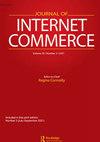社交媒体对感知信息可信度和决策的影响
IF 4.1
Q2 BUSINESS
引用次数: 94
摘要
摘要研究发现,来自名人、社交媒体影响者和他们在现实生活中认识的人的信息会影响千禧一代消费者的购买决策。这项研究调查了名人、有影响力的人和消费者个人认识的人如何影响千禧一代利用社交媒体信息获取消费产品信息的方式。该研究还探讨了有助于信任这些信息的因素。利用千禧一代大学生的数据,作者发现,Instagram最常被用于服装信息,而YouTube则与化妆品和美发产品最相关。然而,来自他们个人认识的人的信息仍然被认为比来自其他来源的信息更值得信赖。尽管研究表明,名人和社交媒体影响者对提高产品知名度有积极影响,但营销人员应该认识到,消费者仍然信任他们个人认识的人的背书,尤其是在他们的购买决策方面。依靠名人和社交媒体影响者来推广产品并不能取代或取代建立消费者信任的有针对性的营销努力。讨论了对研究和实践的启示。本文章由计算机程序翻译,如有差异,请以英文原文为准。
The Effect of Social Media on Perceived Information Credibility and Decision Making
Abstract Studies have found that information from celebrities, social media influencers, and people whom they know in real life affects millennial consumers’ purchasing decisions. This study investigates how celebrities, influencers, and people whom consumers know personally impacts the ways in which millennials utilize social media information to gain information about consumer products. The study also addresses factors that contribute to trusting that information. Using data from millennial college students, the authors found that Instagram was most utilized for apparel information, while YouTube was most relevant for cosmetic and hair products. However, information from people whom they knew personally was still deemed more trustworthy than that from other sources. Although research suggests that celebrities and social media influencers’ have a positive impact on raising product awareness, marketers should be cognizant that consumers still trust endorsements from people whom they know personally, above all else, regarding their purchasing decisions. Relying on celebrities and social media influencers to promote products does not substitute for or replace targeted marketing efforts to build consumers’ trust. Implications for research and practice are discussed.
求助全文
通过发布文献求助,成功后即可免费获取论文全文。
去求助
来源期刊

Journal of Internet Commerce
BUSINESS-
CiteScore
10.50
自引率
7.00%
发文量
18
期刊介绍:
The business world has undergone many changes because of information technology, and the impact of the Internet may cause one of the biggest yet. While many people use the Internet for educational and entertainment purposes, organizations and companies are looking for ways to tie their internal networks to this global network to conduct electronic commerce. While companies have been conducting business electronically with suppliers and customers for many years, conducting online commerce via the Internet offers even greater opportunities for multinational, national, and even small businesses to cut costs, improve efficiency, and reach a global market.
 求助内容:
求助内容: 应助结果提醒方式:
应助结果提醒方式:


